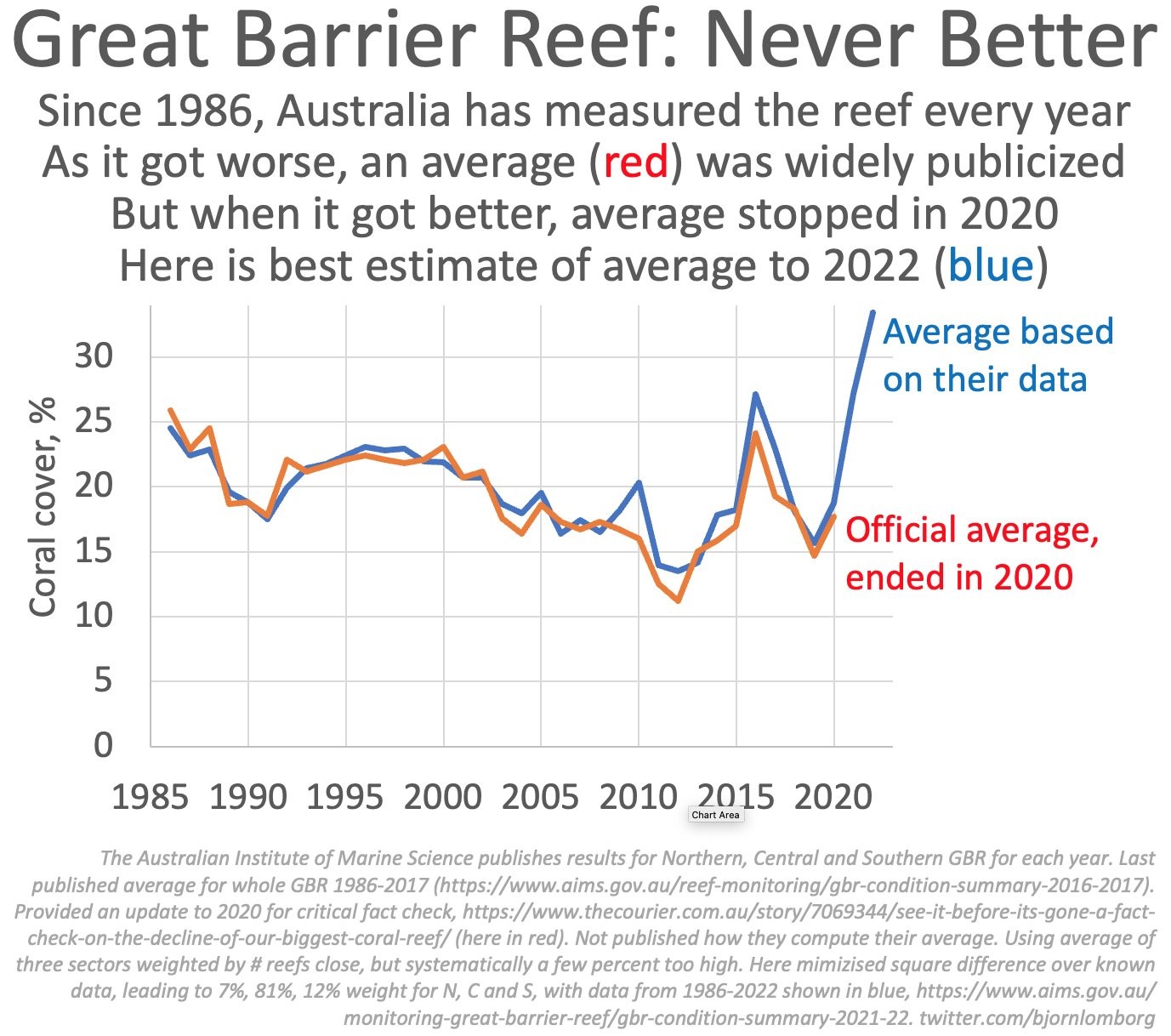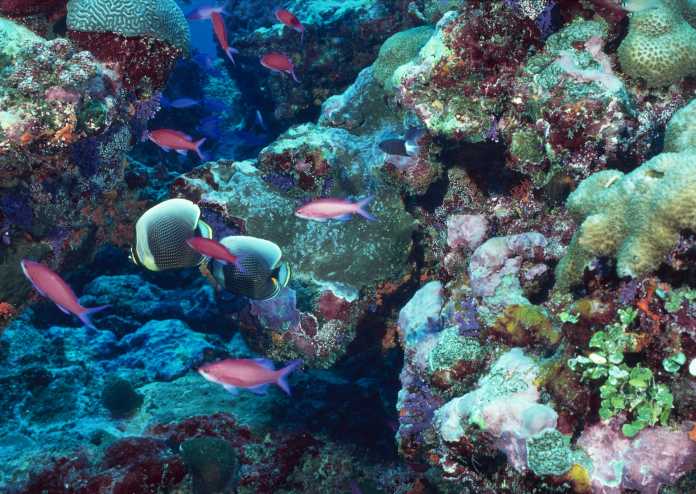The Wall Street Journal (WSJ) recently published a story describing a new United Nations Educational, Scientific, and Cultural Organization (UNESCO) mission report, claiming that climate change threatens the survival of Australia’s Great Barrier Reef (GBR). This is false. Data show, even as the Earth has modestly warmed, the GBR has added coral.
According to the WSJ article, titled “U.N. Mission Joins Growing Calls to Label Great Barrier Reef ‘In Danger,’” UNESCO says climate change threatens such harm to the GBR that it should be categorized as an “in danger” world heritage site. An in danger listing is a symbolic way of notifying the “international community of conditions which threaten the very characteristics for which a property was inscribed on the World Heritage List, and to encourage corrective action.” As the WSJ describes it, UNESCO’s report is intended to pressure the Australian government into taking more drastic action on reducing greenhouse gas emissions, and alleged “excessive” use of fertilizers for farming, among other recommendations. Reef tour agencies are concerned that the designation would significantly reduce tourism to the region, damaging the local economy, reports the WSJ.
UNESCO’s report, according to the WSJ, “said current conservation efforts were not enough to protect the Great Barrier Reef, ‘in large part due to the sheer scale of the challenge’ presented by climate change, development, and deteriorating water quality.”
“[L]ast year, the committee concluded that the Great Barrier Reef’s ecosystem “had further deteriorated from poor to very poor” and issued the same recommendation …,” wrote WSJ reporter Christine Chung.
This is a strange claim, because data from the Australian Institute of Marine Science (AIMS) recently concluded that over the past three years the GBR has seen a sharp increase in coral cover. (See the figure below)

The demise of the GBR has thus been greatly exaggerated. In reality, AIMS found that only about 22 percent of the reef has experienced bleaching in recent years, and most of those shows areas are quickly recovering.
As discussed in the Climate Realism post, “Great Barrier Reef Defies Climate “Science” and Pundits,” the latest data from the AIMS GBR conditions summary shows all-time high coverage (for the recordkeeping period since 1985) in 2022.
Researcher Peter Ridd, Ph.D., says that the only bad news on this end is that, “record high coral cover means it is likely that coral cover will decline in the next few years. Prepare for the headlines saying the reef has lost much of its coral and is indicative of climate change and farmers polluting the reef.”
Coral bleaching and die offs ebb and flow. No data exists indicating a total crash, either at the GBR or at other coral reef location, is imminent, as Climate Realism explains, here, here, and here, for example.
While some reefs have gone through periods of bleaching and die-offs, Climate at a Glance: Coral Reefs, explains that there are many events that can contribute, including cold snaps. Sediment buildup from land and estuary runoff can also harm some corals, and runoff of chemicals and fertilizers from upstream agriculture and industry can also cause some bleaching. However, bleaching and death are not synonymous and, as explained above, coral recovery from bleaching is not unusual.
Corals have existed and flourished on Earth during periods in which CO2 concentrations were much higher than today and during periods of warmer temperatures. Coral’s even managed to squeak by during much colder periods. In recent decades, coral reefs have actually been expanding their range in response to warmer ocean temperatures. UNESCO showed a stunning lack of awareness regarding the actual state of the Great Barrier Reef, which is currently doing just fine. It’s sad the WSJ didn’t check the facts before giving column inches to UNESCO’s flawed report.
There is no justification for applying pressure to the Australian government to “save” a reef that does not need saving.

















